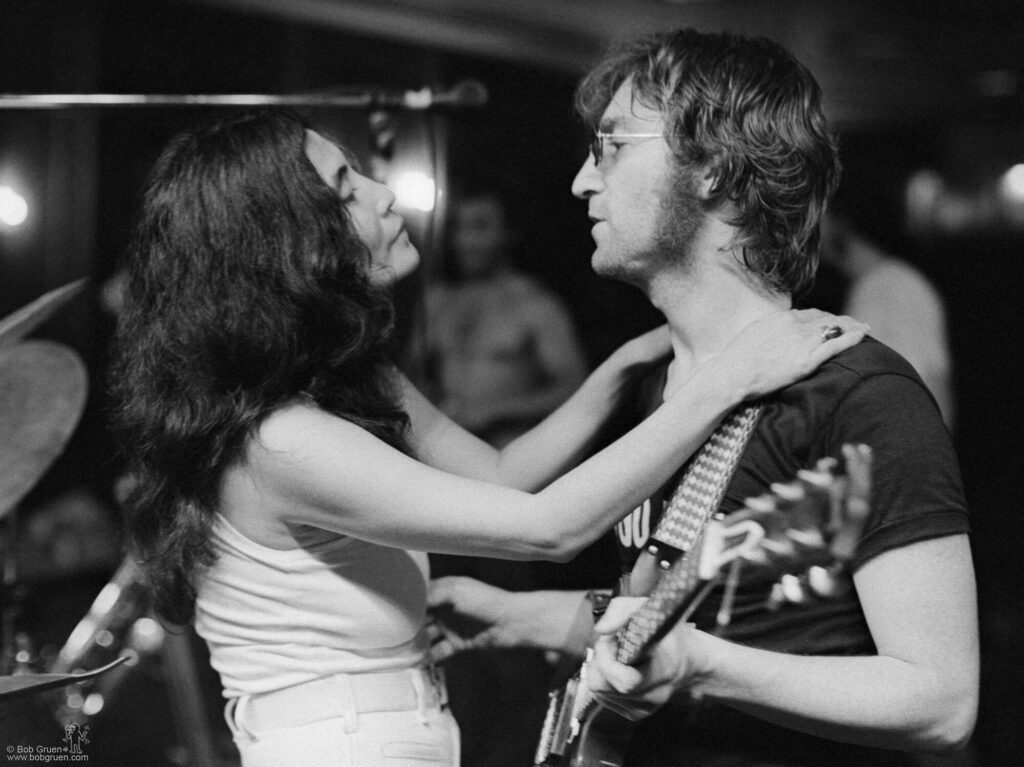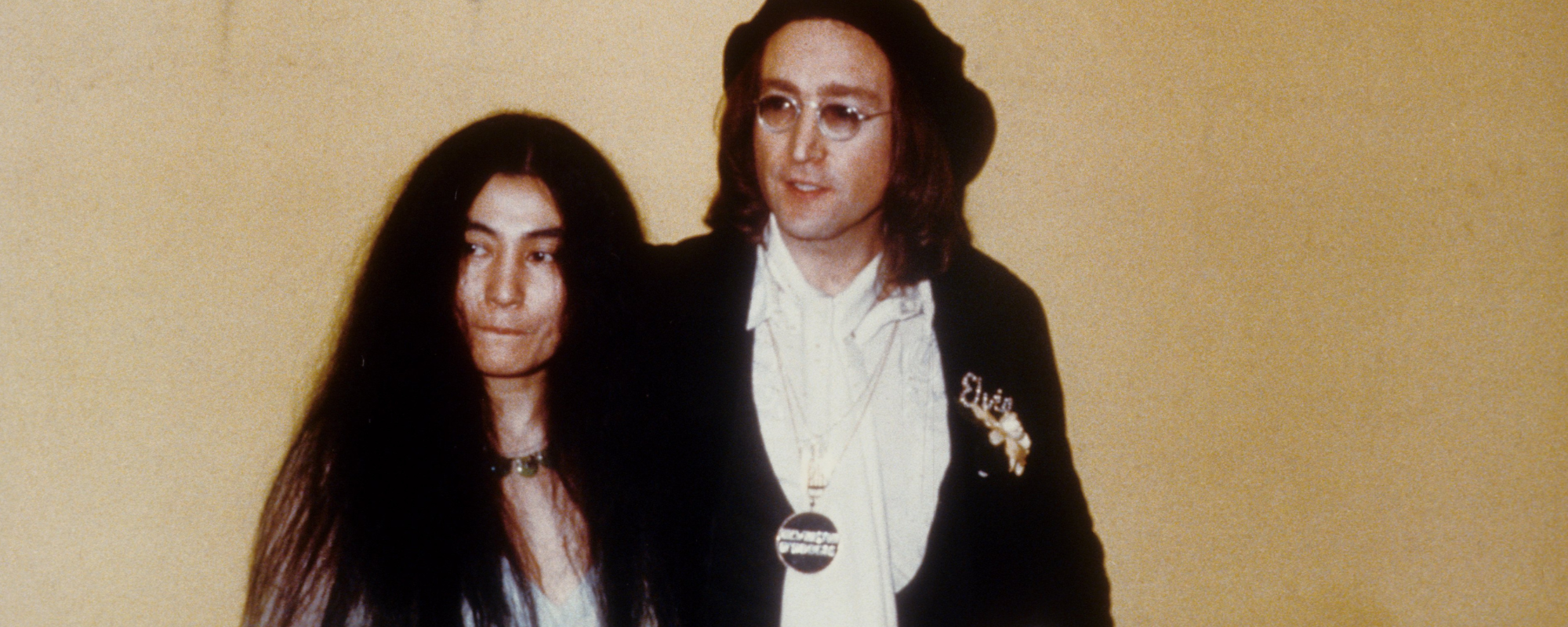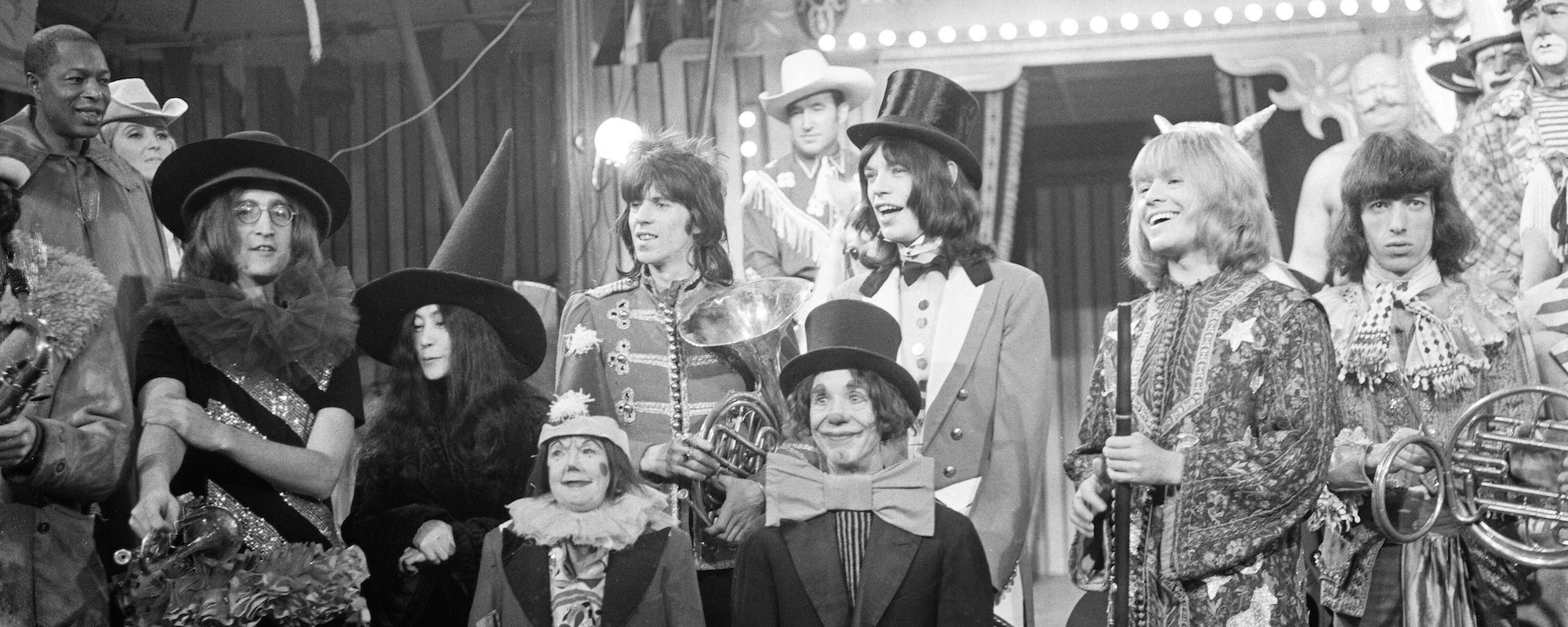
Grammy Award-winning producer/songwriter Marvin Etzioni on the impact & legacy of Lennon’s Plastic Ono Band, and the new Ultimate Collection
By the time John Lennon/Plastic Ono Band was released in 1970, Lennon’s band, The Beatles, had taken over the world. There was nothing bigger. There was nothing better.
Videos by American Songwriter
With POB, Lennon takes a pin to the sky and pops the bubble. During the song “God,” he confesses “I don’t believe in Beatles…the dream is over.”
I connected to the sparse production, the vocal angst, and direct lyric approach. “A working class hero is something to be,” he sings on the Bob Dylan “Masters Of War”-inspired “Working Class Hero.”
I came from a working class family. My father was a carpenter. My mom worked for a government agency. My grandparents worked the sweatshops in downtown Los Angeles. A working class hero was something to be. The song built around one chord (A minor). It was the first song I learned on guitar.
“Working Class Hero,” ironically enough, doesn’t applaud the working class; the song is taking a piss. At the age of eight, I was listening to “She loves you, yeah, yeah, yeah.”
At 13, Plastic Ono Band hit me right between the eyes.
POB opens with half-speed bells, ominous in tone. Only ten years later, Lennon would use the sweet sounds of high-pitch bells to open Double Fantasy, revealing the beginning of the man/woman dialogue with the light-hearted single “Starting Over.”
In “Mother,” the dark, grainy-sounding funeral bells would cut starkly to the heavy, piano-driven band with vocal bleeding and pleading, “Mother you had me, but I never had you.” (In the “Elements Mix” section of the box set, the solo vocal mix of “Mother” is haunting). It was just six years earlier that The Beatles’ “I Want to Hold Your Hand” sold 13 million copies and took America by storm via TV and radio. (I would add press, but mainstream magazines such as Newsweek printed unkind ink about The Boys).
Lennon was now obliterating the past. If you came to be entertained with hand claps, you came to the wrong place. If you came to be enlightened, keep listening. The song concludes with Lennon repeating the mantra, “Mama don’t go, Daddy come home” until there is nothing left of his voice — nothing left to long for.
This wasn’t third person writing by Dylan as in “Sad-Eyed Lady of the Lowlands,” which takes up an entire side of his double-disc masterpiece Blonde on Blonde. John was writing in first person, revealing something that had long been dormant.
During Beatles years, his first person songs included “In my Life” and “Strawberry Fields,” but this was different; this time the message from within came with a newfound energy and awakening. A year earlier, he stood naked with Yoko on the front cover of Two Virgins. Plastic Ono Band sounds like that cover looks — stripped down, unadorned, and human.

As spontaneous as the album sounds, the box set reveals what went into the writing and recording processes. In the “Home Demo” section of the box set, both “Mother” and “God” were originally written on guitar and both ended up on piano for the album. In the “Evolution Documentary” section of the box set, Lennon is caught on tape questioning if “Mother” should be a guitar or piano song. Clearly, the box set of POB suggests that much of the album was a work in progress.
I would venture to guess that Ringo and Klaus had not heard the songs before going into the studio. The song “Love” went through experimentations, from a waltz-time version to a solo tremolo electric guitar version. The final is on acoustic guitar. It was only six years earlier when the first Beatles album was recorded in one day. They put in their 10,000 hours in Hamburg. This multi-disc set uncovers Lennon chiseling away at the stone of song in the studio.
During an outtake of “Hold On,” John leans on Yoko, wanting to know how it’s sounding. Their dialogue is not unlike many artists and producers interacting in the studio. There are very few female record producers through the decades, yet Yoko rarely receives any credit for sharing this crucial role with Lennon and Phil Spector. Yet she did the job and with consistency; they spoke as equals always because he respected her judgment.
It’s hard to ignore the political overtones of the actuality of Yoko’s role, given the lack of recognition she’s received for so long. Fifty years after the release of this album, women (gay, trans and/or straight) are still fighting to be heard and recognized as equals. Few artists or bands have ever been produced by a woman.
That inequity is mirrored in the way Yoko’s role as producer still is understated, overlooked or dismissed entirely. But the truth is that, without Yoko, there would have been no Plastic Ono Band.

“Yoko didn’t only inspire my songs only,” John said. “She inspired me.”
Photo by Bob Gruen.
An outtake of “Look at Me” has Lennon playing with Ringo and Klaus. Ringo turns the song into a double-time feel, not unlike James Gadson’s playing with Bill Withers, though Withers was not in the public eye in 1970. The final version ends up with a solo acoustic guitar.
The box set also includes three stand-alone hit singles with outtakes: “Give Peace a Chance,” “Cold Turkey,” and “Instant Karma! (We All Shine On).” The set ends with outtakes from the Yoko Ono/Plastic Ono Band album (which was released alongside Lennon’s POB with the same front cover, and she is backed by Lennon, Ringo and Klaus).
Yoko’s Plastic Ono Band deserves recognition as an album decades ahead of its time.
No one is on the front cover posing. This ain’t Meet The Beatles! In fact, the blurry picture taken on an Instamatic camera of two people resting against a tree could be of anyone. The artist name and album title are not on the front cover, and there is no track listing on the back cover.
POB doesn’t feel like a recording, but as a document of truth — Lennon in pain. In 1970, I had never heard anything like this. It would be another twenty years before Kurt Cobain would attempt to come close to such realism.
Lennon’s debut opens with the scorching “Mother.” McCartney’s debut opens with the pretty “Lovely Linda.”
I have a theory about songwriters, in particular Lennon and McCartney. Lennon wrote as if his father had abandoned him. McCartney wrote as if his father was always there for him.
Paul could play all the instruments, including drums, on his album. John needed a band, and created my favorite rhythm section: Ringo Starr on drums with Klaus Voormann on bass.
In the box set, Lennon leads the section during an outtake of “I Found Out” (Take 3) by suggesting, “Just play how you feel.” And that they do. The playing and production on this album were decades ahead of their time.
Dare I say, “Mother,” although released as a single, was not a hit. When it was released, I never heard a song from POB on the radio.
If you want to experience the box set, I would suggest listening to the just under 40-minute album first to appreciate the outtakes in context. Nor would I suggest watching the outtakes of Peter Sellers at the end of Being There before watching the film. POB is Lennon’s Being There. Both are testaments of deep artist achievements.
As a side note, during some of the playful outtakes on the box set, Lennon jokes about and sounds a bit like Sellers.
The super-pristine perfection of Abbey Road just a year earlier (perhaps the first album of the 1970s) would be replaced with the under-produced sound of POB, which engages the listener in a way which is potentially more challenging. It’s unnerving how POB gets under one’s skin.
Consider John Lennon Plastic Ono Band as the first punk album ever recorded.
The album ends with a cassette-sounding recording of “My Mummy’s Dead.” The full circle is complete.
What happens in-between “Mother” and “My Mummy’s Dead” can only be experienced on POB.
Without a hit single on POB, Lennon returned to form on his next album, especially on the lushly and beautifully-produced song “Imagine.” This time, radio would embrace him.
On POB, he was making a record on his own terms. A blend of blues, folk, punk and roll, gospel, with funk and soul. Fifty years later, the album sounds as if it was recorded today.
On the Sgt. Pepper’s cover, The Moptops are gazing at their own grave. On Plastic Ono Band, through the Power of Song, Lennon buries The Beatles once and for all.












Leave a Reply
You must be logged in to post a comment.